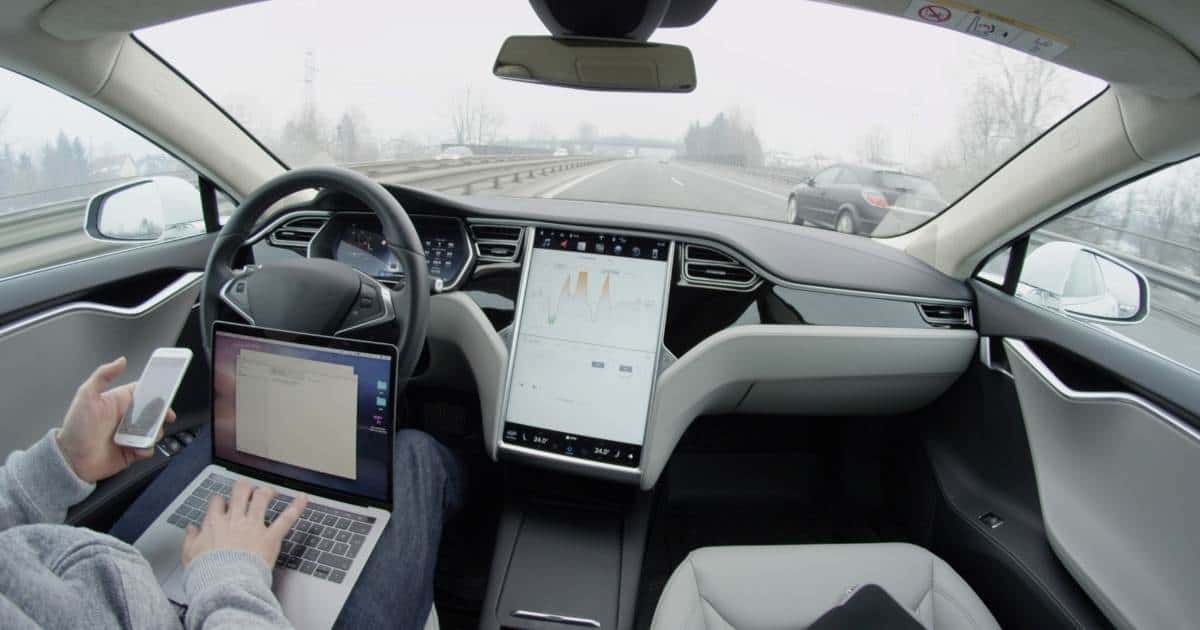Who Is Liable for a Self-Driving Car Accident?
When a self-driving car gets into an accident, determining who is at fault for causing the accident requires an investigation of the parties that potentially share the blame.
The parties who might have contributed to the cause of the accident include:
- The person who would be the driver of the self-driving vehicle, even if not driving.
- The auto manufacturer.
- A manufacturer of a defective component.
- A vehicle repair shop.
- The auto dealer.
- Any other company in the distribution chain.
- A road construction company, if the road conditions caused the accident.
1. The Driver of the Self-Driving Vehicle
If a vehicle was self-driving, it does not mean that an accident was automatically that vehicle’s fault. Human beings are still the leading cause of auto accidents. Negligence of the other driver who hit the self-driving vehicle may be to blame or partially to blame for causing the accident.
However, a driver who relies completely on the self-driving capabilities of a vehicle is placing too much reliance on the system. That is not appropriate. Even if the car is self-driving, the human driver needs to watch what is going on and stay alert to deal with any sudden problem.
2. The Auto Manufacturer
Making a claim against an auto manufacturer usually relies on product liability laws. Manufacturers may be liable if manufacturing defects cause injuries or deaths. In such cases, you must prove that the vehicle had a defect when manufactured and the defect caused the accident.
A product is defective if it is unsafe for its intended use. An example would be if an automatic braking system accelerated a vehicle instead of stopping it.
If the driver is also negligent, then the manufacturer and the diver may partially be to blame.
3. A Manufacturer of a Defective Component
Defective components are another example where product liability laws prevail. Vehicles made from components include parts manufactured by many suppliers.
Suppose the components, such as in-auto self-driving technology, including software and hardware, contributed to the cause of the accident. In that case, the component manufacturer may be held liable along with the auto manufacturer.
4. A Vehicle Repair Shop
Improper and faulty repairs may cause auto accidents. Even if the auto does not have a defective component, faulty maintenance work may cause it to have an accident. A claim is possible against the repair shop that did the shoddy job.
5. The Auto Dealership
Suppose there is a factory recall to replace a defective part. When a customer brings their vehicle to the auto dealership service department for the recall work, the repair is faulty. In such a case, the auto dealership may be to blame if you took the car to their service department for recall service or maintenance.
6. Other Companies in the Distribution Chain
The product liability laws create liability for any company participating in a product distribution chain. When a personal injury attorney files a lawsuit, the defendants will include all the companies in the distribution chain, including the dealership, the auto manufacturer, the components manufacturers, and various other companies identified during the discovery process.
7. A Road Construction Contractor
If the cause of the auto accident was the negligence of a road construction company or poor road construction, it does not matter that the vehicle was self-driving. The road construction contractor may be to blame.
Talk to an Attorney
If an accident happens because of the negligence of another party, it may not matter if your vehicle is self-driving. The self-driving vehicle may be partially to blame, but so may the other driver(s) and other parties. Call (281) 475-4535 to speak to an attorney for a free consultation.


